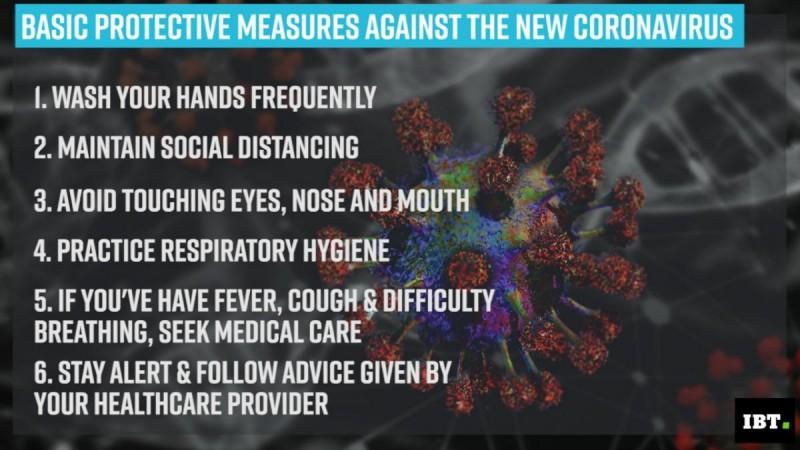The colour of your eyes is an indicative symptom of many diseases such as jaundice, typhoid, sore eyes etc. and doctors do take adequate preventive measures, to make a note of it, ascertain the treatment period of the virus, and recommend medications as needed.
In view of the recent coronavirus outbreak, a nurse treating Covid-19 infected patients in the US revealed an interesting observation: the colour of eyes changes to red, which she refers to as "allergy eyes".
To clarify further, you might have assumed that it's the white section of eyes that generally changes colour - either to red or yellow. But in the case of coronavirus confirmed cases it's different. It's not the white section inside the eyes that changes to red, but the outer area of the eyes that gets infected to turn red, which looks more like an eyeshadow applied. Most often patients with red eyes and several other symptoms when tested are coronavirus positive and shifted immediately to an isolation ward.
Does coronavirus affect the eyes?
While the coronavirus infection can take different forms and affect the patient in dissimilar ways, the red eye phenomenon is more commonly observed in Covid-19 tested positive cases. According to the Centre for Disease Control and Prevention (CDC), the common coronavirus symptoms include cough, fever and shortness of breath. Emergency indications include feeling persistent pressure or pain in the chest and bluish lips, but nowhere as per CDC or WHO is the symptom of red eyes indicative of a Covid-19 positive.
It could be a condition of conjunctivitis, says American Academy of Ophthalmology. There have been reports of many Covid-19 cases developing bloodshot eyes, which looks like allergic reactions.

Another unusual symptom flagged by the American Academy of Otolaryngology-Head and Neck Surgery on their website said, "symptoms of anosmia (lack of sense of smell) and dysgeusia (lack of taste) is evident in Covid-19 tested positive patients. Medical literature for long has associated sudden loss of smell with respiratory infections caused by several other types of coronaviruses.
Those above the age of 60 with weak immunity and underlying health conditions such as asthma, chronic lung disease, heart failure, extremely obese with BMI over 40, and autoimmune disorders are at a greater risk of contracting the deadly virus. People showing even mild symptoms of body ache, pain, sore throat, running nose and diarrhea should self-isolate during these times and contact the medical practitioner immediately for further tests to be conducted.
Does coronavirus spread with an eye-to-eye contact?
Eyes do play an important role in virus transmission, especially if an eye protective gear is not worn. Avoiding touching your face and eyes with unwashed or unclean hands, as it's the mucous membrane lining the various cavities in the body, that are most susceptible to virus attack.
Covid-19 is known to cause ocular infections in animals, but its impact of causing eye infections on humans is not researched yet. Researchers say more studies need to be conducted, if coronavirus infection does infect the eyes.
The coronavirus emerged in late December 2019 in Wuhan, China and now has become a global pandemic causing many deaths across various parts of the world. A coronavirus tested positive patient could have inflammation of the membrane over the eyeball, turning "pink" to make you look "teary eyed" most times.
As per research, most upper respiratory infections show signs of viral conjunctivitis as indications. In case of coronavirus confirmed patients too, there is "conjunctival congestion" and red eyes are observed. But the virus is not transmitted through eyes.

As per research findings, the coronavirus spreads through airborne "respiratory droplets" when you cough or sneeze, and touch surfaces or touch other sensory organs of your body such as face, mouth and eyes, or is possibly inhaled into the lungs by the other person.
While it's not known how easily or quickly the virus spreads from one person to another, many large events and social gatherings have been cancelled and postponed to avoid community transmission of the virus in the air, surface or through in-person contact with the infected. Masks are recommended to be worn to protect yourself from inhaling the respiratory droplets in the air, especially if you are outside the confines of your home for emergency reasons only.
Self-quarantine and tests are advised by WHO, if you or anyone from your family is back from international travel, and nationwide lockdown is imposed for 21-days in India and across different parts of the world.








